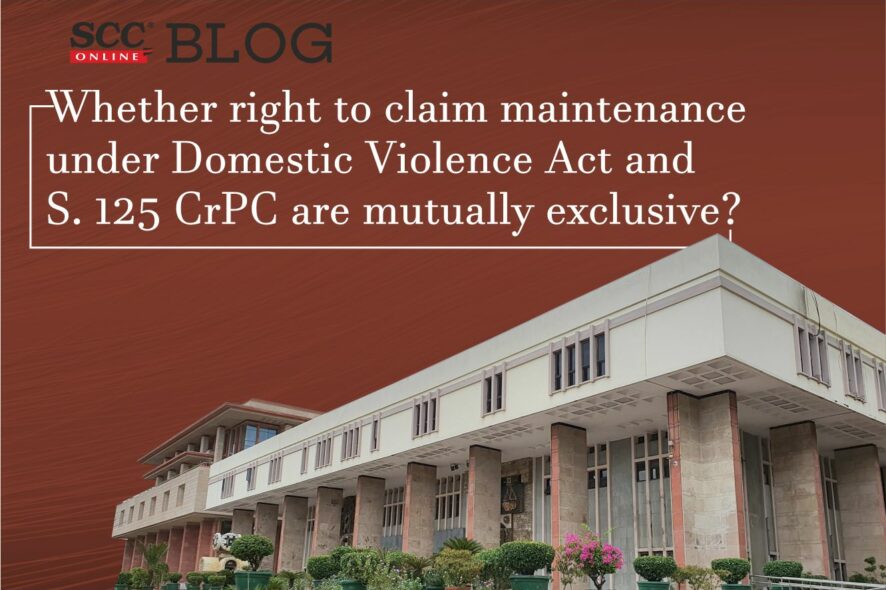Delhi High Court: Asha Menon, J., observed that, the right to claim maintenance under the Domestic Violence Act and those under Section 125 CrPC are not mutually exclusive i.e. the aggrieved person can seek interim maintenance before the Magistrate while also seeking permanent maintenance under Section 125 CrPC.
In the present matter, the petitioner and respondent 2 were husband and wife and multifarious litigation was going on between them, one before the MM under the Protection of Women from Domestic Violence Act, 2005 and the other before the Family Court under Section 125 CrPC.
Instant petition was preferred against the orders passed by the ASJ, Saket Court in an application preferred by respondent 2 under Section 5 of the Limitation Act against the order of the MM condoning a delay of three years and ninety-nine days in filing an appeal against the order.
Analysis and Decision
High Court observed that the present case appeared to be a case where different avenues for relief caused enough confusion, which both, the Family Court as well as the ASJ, tried to sort out.
“The D.V. Act is, without doubt a piece of welfare legislation, to protect the interests of women in a domestic relationship and shared household, against not just physical abuse but also emotional and financial abuse.”
Hence, the ASJ was right in dealing with the condonation of application in that perspective and not choosing to dismiss the appeal on procedural technicalities.
Law of Limitation and DV Act, both have to be balanced out.
Further, the Bench expressed that,
“No doubt, inordinate delay would vest certain rights in the opposite party but when it comes to the question of maintenance and welfare of family members protected by the D.V. Act, there can be no vesting of such rights that would result in the divesting of rights assured by a special piece of legislation.”
In the present matter, respondent 2 did not resort to dilatory tactics to file an appeal in order to harass the petitioner, instead, she continued to pursue her right to maintenance before the Family Court under Section 125 CrPC.
High Court noted that the Courts always held that “sufficient cause” under Section 5 of the Limitation Act, 1963 was elastic enough to be applied by the Courts in a meaningful manner, which subserved justice.
Elaborating further, the Court stated that the facts, as brought as the explanation for the delay, and the intent of the party seeking condonation as evidenced by the circumstances, would guide the court in the exercise of its discretion to condone the delay in family matters.
Settled Law
Under Section 482 CrPC, this Court will not act as a Court of appeal and only if perversity or non-application of mind is disclosed in the impugned order or the impugned order results in a grave miscarriage of justice, that the court would interfere with it in the exercise of these powers. Though the present case does not disclose any such circumstance.
Hence, in view of the above, the pending application was dismissed. [Jagmohan Kashyap v. Govt. of NCT of Delhi, 2022 SCC OnLine Del 1609, decided on 27-5-2022]
Advocates before the Court:
For the Petitioner:
Ashish Upadhyay, Advocate
For the Respondents:
Meenakshi Chauhan, APP for R-1/State
S.S. Wani and Hasnain Khwaja, Advocates, for R-2







